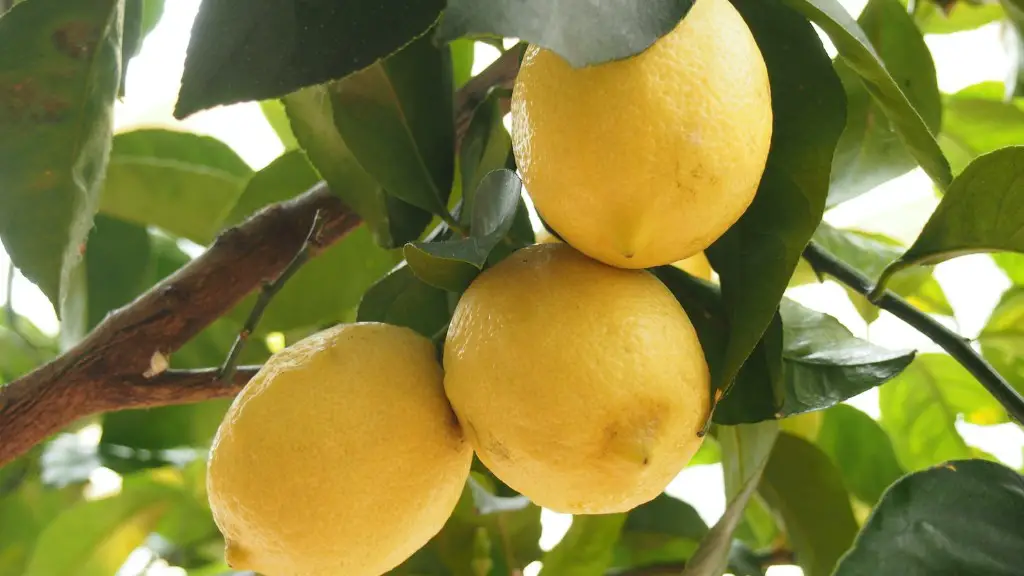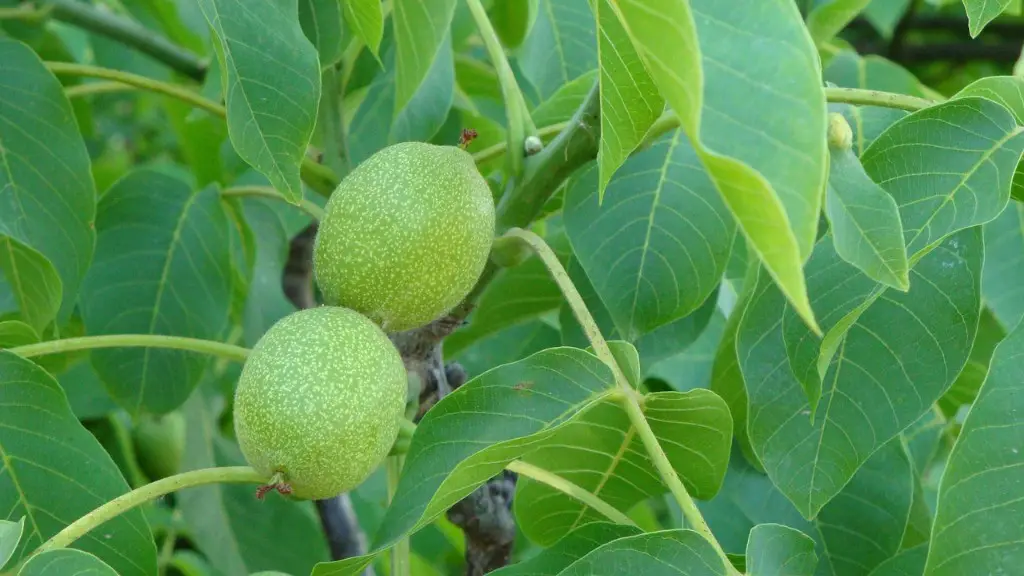Boosting lemon tree growth requires a combination of good soil, ample sunlight, water, and fertilizer. The key to a successful harvest of lemons lies in the proper execution of each of these aspects. Here are some tips on how to boost your lemon tree growth.
1. Use Fertilizer Appropriately
Fertilizing is one of the most important aspects of boosting lemon tree growth. It is best to use a 10-10-10 or 6-6-6 slow-release fertilizer to provide the necessary nutrients for growth. Spread the fertilizer in a 2-3 foot round area around the base of the tree at least twice a year in the spring and fall months. It is also important to fertilize anytime the soil starts to look dry and cracked.
2. Choose the Right Soil
Choosing the right soil is an important part of boosting lemon tree growth. The best soil should be slightly acidic with a pH of 6.5-7. Soils with a higher pH can be amended with the addition of sulfur or other pH lowering agents. The soil should also be fertile with full of organic matter and well-draining. Adding a layer of mulch to help keep the soil moist is also beneficial.
3. Water Regularly
Water is essential for the growth of lemon trees. The key is to keep the soil moist, but not soggy. Generally, it is best to water the tree about once a week or when the top 2-3 inches of soil are dry. Young trees may need water more often. Applying a layer of mulch can also be helpful in retaining moisture.
4. Provide Ample Sunlight
Lemon trees need a lot of sunlight for healthy growth and production of fruit. Aim to have your lemon tree in direct sunlight for six to eight hours per day. The best time for lemon trees to get sun is during the morning and early afternoon hours when the sun is not too harsh.
5. Prune and Thin the Tree
Pruning and thinning your lemon tree helps promote healthier and better-looking fruits. By removing dead or dying branches, you allow the better-looking and more productive branches of the tree to have a chance to grow. It is also important to thin the lemon fruits on the tree, in order to produce bigger and higher quality fruits.
6. Use Pest Control
Pests can quickly cause damage to your lemon tree and prevent it from growing properly. The best way to control pests is to inspect your tree regularly and take action to remove them as soon as they appear. Insecticidal soap, oils, and other solutions are good ways to take care of pests without harming your lemon tree.
7. Monitor Soil and pest Conditions
Finally, monitoring soil and tree conditions is an important step in helping your lemon tree grow properly. Make sure the soil is the right compost, water, and pH levels for your particular type of tree. Check for any pests or diseases, if the tree looks unhealthy, and take action if necessary.
8. Rotate the Tree’s Location
Rotating your lemon tree’s location in the warm months can also be beneficial for boosting lemon tree growth. Moving the tree to a different spot every few weeks, such as from a shady spot to one that gets more sun, can help promote new and larger fruits. This type of rotation also encourages the tree to produce higher-quality fruits.
9. Maintain Proper Soil Ph Levels
The pH level of the soil is an important factor in the growth of lemon trees. The best soil should have a pH of 6.5-7 as it is slightly acidic. If the soil is too acidic or alkaline, it can prevent proper absorption of nutrients, so it is important to test the soil and adjust the pH if needed. Adding sulfur can lower the pH while adding lime can increase it.
10. Provide Support for the Tree
Lemon trees can be prone to breakage due to the weight of the fruits. Applying some form of supplemental support for the branches can help prevent this problem. You can use stakes and ties, or even weave a net among the branches for support. This will allow the branches to bear the weight of the fruit without breaking or snapping.
11. Add Compost and Organic Matter to the Soil
Adding compost and other forms of organic matter to the soil can make a huge impact on the growth of lemon trees. The soil should be rich in nutrients, and adding compost is an effective way to provide these. Compost adds important nutrients that are necessary for robust growth, such as potassium and phosphorus. It also helps to keep the soil light, aerated, and well-draining.
12. Choose the Right Containers for Indoor Trees
For those who want to grow a lemon tree indoors, it is important to choose the right type of containers. The pot should be large enough to allow for adequate root growth and drainage. Clay pots are ideal choices as they allow air and water to move freely, while also providing drainage. Plastic containers may be cheaper, but they do not allow for the same level of air and water flow.


